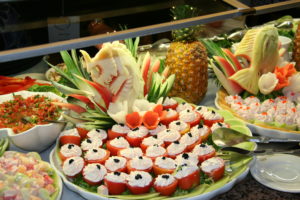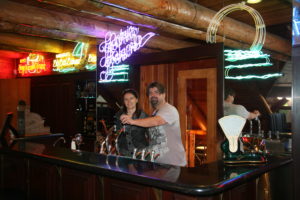Travel with food vacation – how to plan vacation

I believe that everyone who lives with food allergies has to make special considerations when planning a vacation. Are you able to handle all inclusive package, or would you rather cook for yourself all the time, missing out that feeling of being cared for while on vacation. Can you feel safe enough to visit local restaurants and try new foods? Even better, which option would you chose when travelling to a foreign country and you don’t speak the language. Those are definitely basic questions you have to ask yourself every time when planning to go on vacation. It is not as simple as to hit the road and enjoy.
Cooking your own meals:
I have been through making those choices many times, and it has never been an easy one. The right choice depends on many factors. If you don’t mind cooking and your highest priority is to feel hundred percent safe with your choice, you can always look for an accommodation with kitchenette and stores or local markets close by. As long as you stick to foods that you know and you can trust, you will be safe and able to enjoy your vacation. The downside of this choice is that you will be spending considerable time in the kitchen and eating foods that you already know. You will be also isolating yourself from meeting new people and learning about the culture and cuisine of the place you are visiting. However, if you are like me and enjoy exploring local markets, talking to farmers and learning about new produce, you may be OK.
All inclusive vacation and food allergies:
All inclusive vacation is fairly tricky, when dealing with food allergies. Even though this is a great and worry free option for people who don’t need to pay special attention to what they eat, it could be a disaster for someone with food allergies. All-inclusive resorts don’t provide option for your own cooking, so you end up in a mercy of a chief and resort management. Even if you call ahead and ask about their ability to accommodate your needs, you will most likely end up eating very limited variability of foods. You will also have to prepare yourself for a disappointment when it comes to food options and staff’s approach. I found out that planning ahead could make this situation much more pleasant and safe. Especially when travelling to a foreign country I make sure to have a small card printed out with the list of all of my food allergies and examples of common foods that contain those allergens. I make my list in English and use Google translate to provide the same information in the language of country that I am visiting. That way I could be sure that people who don’t speak English very well will not make a mistake. They often take my card to the chief who could make better choices when preparing my food. If you have variety of food allergies and limitation, like me, I would also suggest making another small list (on the same card) with foods that you can eat, to make some suggestions. I find this being very helpful, as people can be intimidated by complex food allergies. Also, taking to the chief at the very beginning of your stay may score you special attention and tastier foods. In countries, such as Mexico, you can get better services through giving small tips (I typically take lots of one US dollar bills). In this case all-inclusive is not completely all inclusive and additional $30-$50 can make you vacation more enjoyable and more pleasant. I know many people think you should not have to pay any extra – sometimes small additional amount truly helps. Even though I have made it through number of all-inclusive vacations it is not my favorite choice. Food options are limited and I have to be checking every food that they serve me.

Hotel accommodation and eating out while travelling with food allergies:
This is a great option of learning about the place you are visiting, while also trying out new foods. This option provides many varieties with many risks. If you are lucky and find restaurants that will cater to your needs, you can truly enjoy this option. I find that visiting places outside of busy hours (lunch and dinner) provides more flexibility and attention to your food. I know, you want to eat at the same time as anyone else, but maybe a slight change of plans and eating an hour later can lead to more pleasant time and better food. Many places are too busy to make special meals, or may not simply have much on their menu for someone with food allergies. Talking to the manager about your needs is an additional assurance that you will get what you have asked for. Don’t hesitate to double check when they serve you the meal, that they have truly paid attention to your specific request. I had been in situations when bread croutons found their way to my salad, or cheese has been added to the tomato sauce. Don’t assume that everyone is as concerned about your well-being as you are. Be polite, but remember that you are the only one paying the price for their mistake. Only you know how much you are going to suffer if you eat something you are not supposed to.
